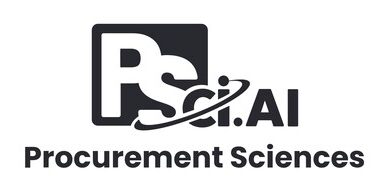Pepper Bio is a seed-stage company based in Boston. Recently it has emerged from stealth. The startup has been building a computational platform. Going by the words of co-founder and chief scientific officer Samantha Dale Strasser, the company believes it can aid in drug discovery.
The inspiration behind Pepper Bio
The founders of Pepper Bio have shaped the company around their own brushes with the disease. Jon Hu, co-founder of Pepper Bio has struggled with chronic migraines and has managed to successfully control the condition. However, he found himself at a loss when his grandmother was diagnosed with Alzheimer’s. Alzheimer’s is a condition with just one highly controversial treatment option).
When Strasser’s father was diagnosed with dementia, she experienced something similar. Doctors could track the disease’s progression, but not halt it.
“That was the first step – just feeling how much your world stops when that happens,” Strasser says.
Challenges in the Drug Developing stages
Creating a new drug can cost anywhere between $985 million to $2.6 billion. The costs greatly depend on what study you follow. Furthermore, R&D returns have rebounded to only about 2.5% in 2020. This does not end here. The drugs that fail in clinical trials don’t actually help people who need new treatments.
With so many problems, it’s not a surprise to see countless startups entering the drug development space looking to carve out their own niche in AI-based drug discovery and advanced proteomics. Proteomics is the study of proteins and their interactions. Or, for one newly launched company, layers upon layers of biological data.
Jon Hu Samantha Dale Strasser
Pepper Bio and the layers of information
There are several layers of biological data. For example, genetic data, proteomics, transcriptomic, and phosphoproteomics. Transcriptomics is the study of RNAs, coding or non-coding existing in a cell. Phosphoproteomics is adding a phosphate group to a protein and changing its function. Pepper Bio has been working with all this biological data.
Pepper Bio describes itself as a Waze for drug discovery. Because its developing computational platform is capable of extracting these layers of information from experimental data.
The idea behind having global causal and functional data and analysis is that we’re much more equipped to handle very complex diseases.
Jon Hu, CEO and co-founder of Pepper Bio.
Representatives of Pepper Bio haven’t revealed the total amount of funding the company has garnered so far. The company has already raised a pre-seed round. It is currently raising a seed round. NFX is backing the company.
So far, the company has four employees.
The drug discovery problem and animal testing
Accumulating and analyzing the biological data seems to be Pepper Bio’s answer to the drug discovery problem. But the real value-add of Pepper Bio is the addition of the transcriptomics and phosphoproteomics components.
So far, there are some general research papers suggesting this approach can be used to find therapeutic targets. One of Strasser’s 2019 papers in Integrative Biology specifically applied the process of phosphoproteomic analysis to two mouse models of inflammatory bowel disease.
The technique specifically identified one kinase that was activated across the mouse models. Animals with colitis (an inflamed colon), were treated with an oral drug in a follow-up experiment. The drug appeared to block activity in the identified pathway. In essence, the paper was a proof of concept that phosphoproteomics can identify relevant targets for preclinical studies.
Future plans and collaborations
Going forward, Pepper Bio still needs to demonstrate that it can use its approach to yield new potential drug targets. So far, the company has two partnerships. One is with a clinical-stage central nervous system company. In this company Pepper Bio is helping profile a potential drug and illuminate how the drug actually works. Pepper Bio is currently writing a paper manuscript with this company.
The company is also working alongside an oncology lab at Stanford. Dean Felsher, the director of translational and applied medicine at Stanford University School of Medicine runs the lab. The company aims to create a data set on solid tumors, develop a clinical prediction algorithm and identify novel targets for therapies.
From the business perspective, the company doesn’t have aims on simply being a drug discovery platform for others to use. The startup would like to maintain the option of developing its own clinical pipeline of conditions. This might come three or four years down the line.
For right now, the company will measure success in terms of how well it can build out its own databases and by pursuing more partnerships with research institutions or drug makers.





